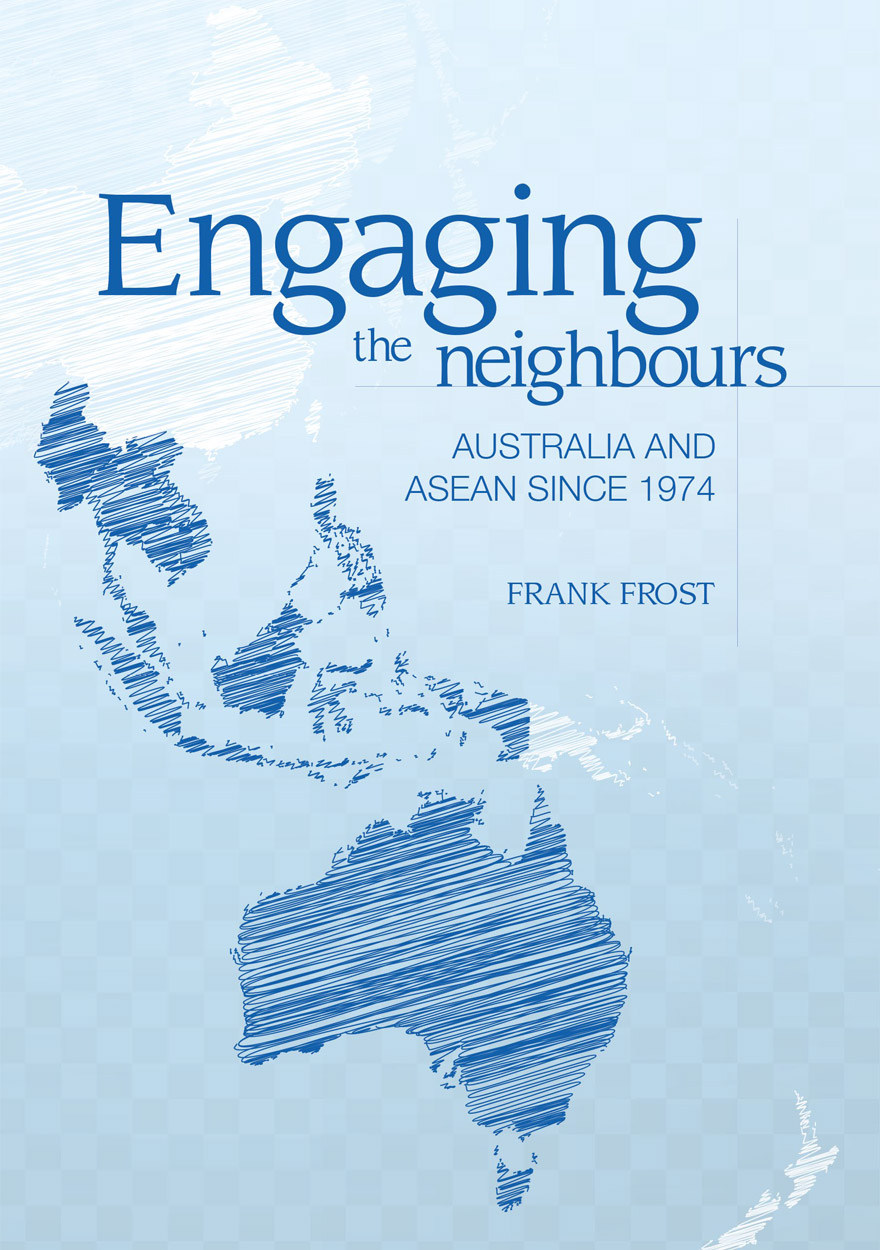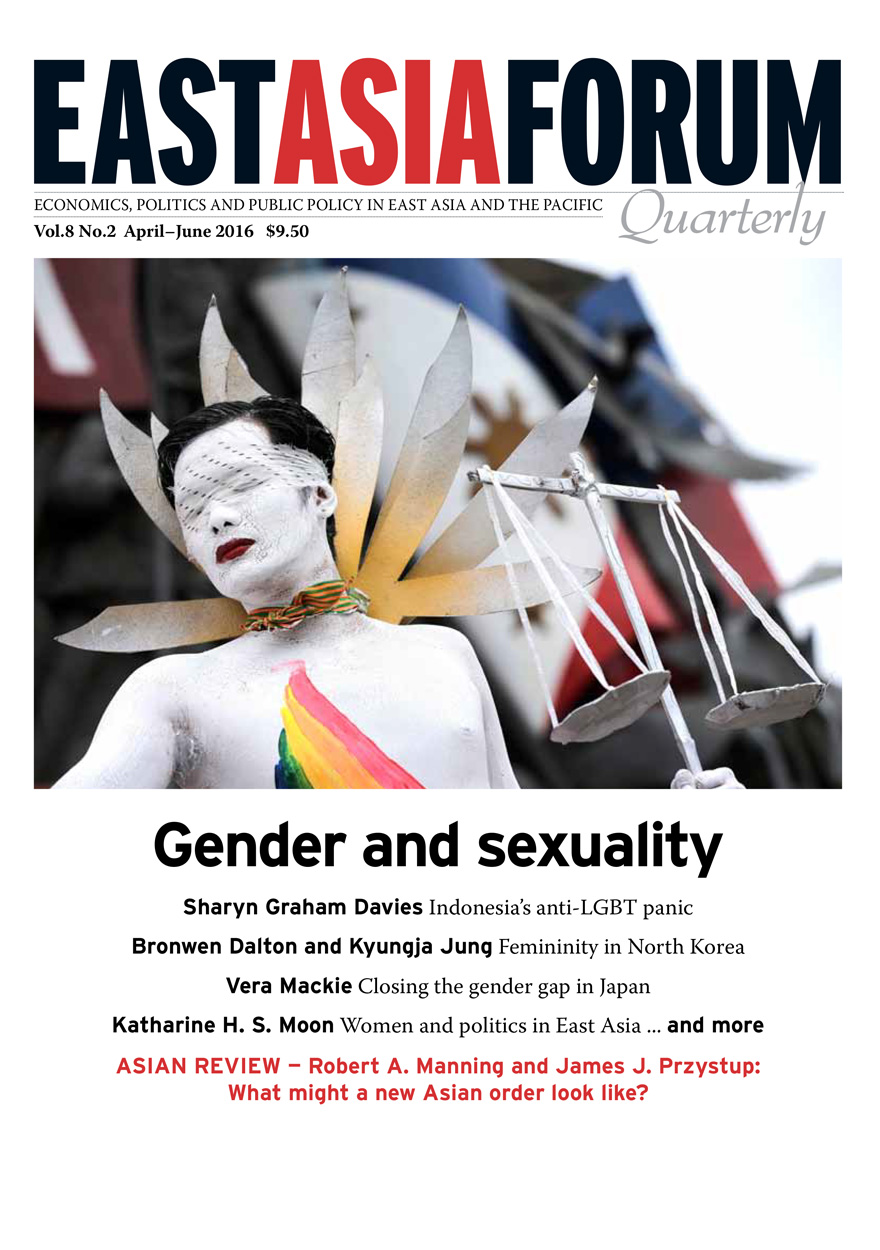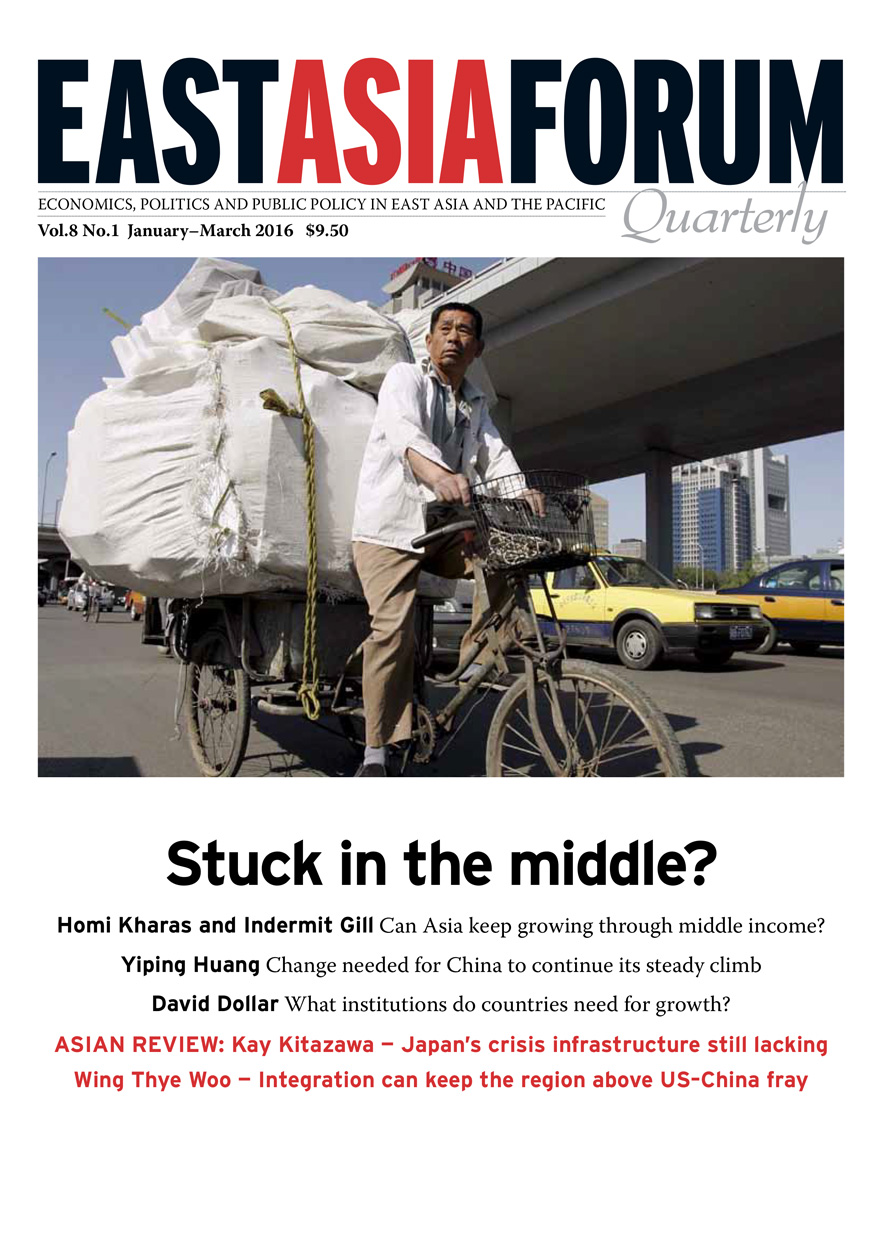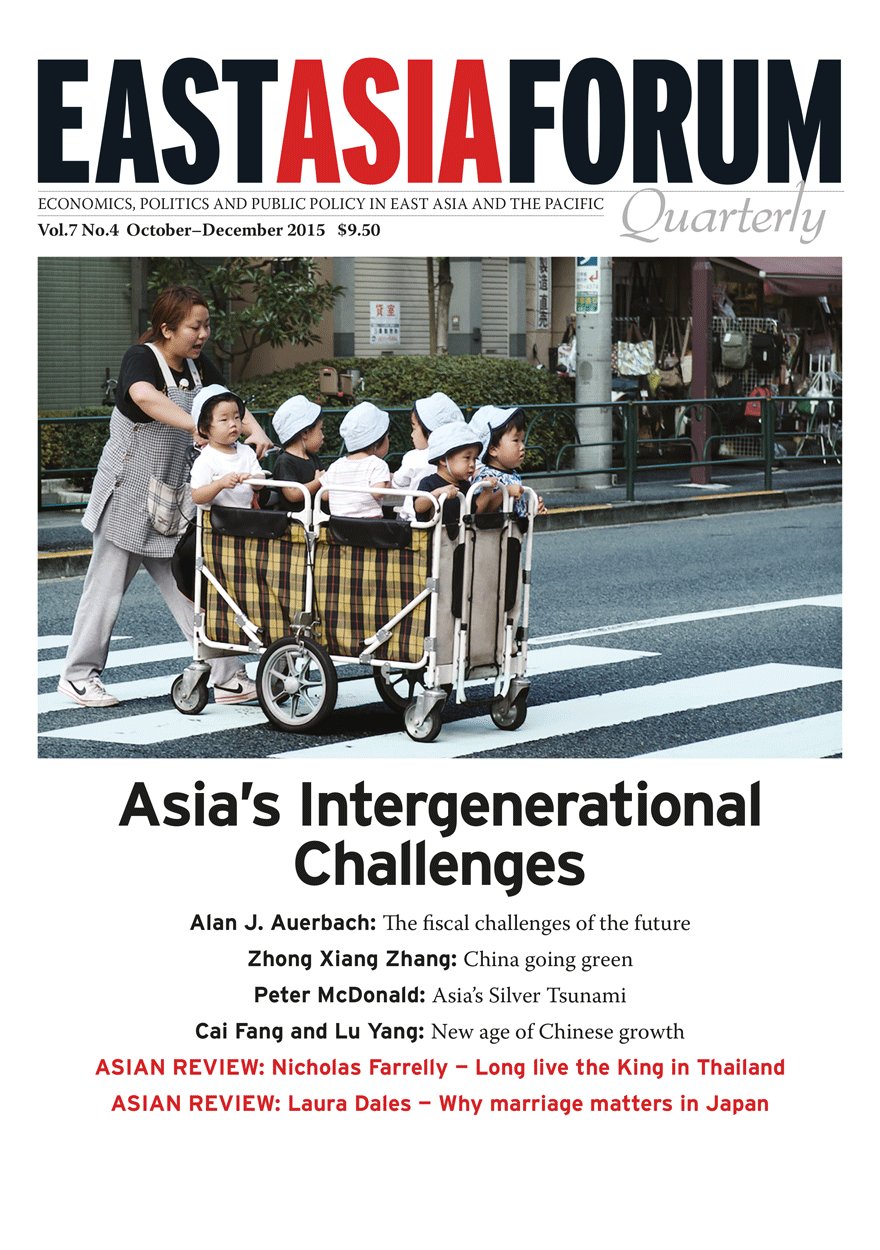Search titles
Displaying results 21 to 30 of 111.

Engaging the neighbours »
Australia and ASEAN since 1974
Authored by: Frank Frost
Publication date: July 2016
From modest beginnings in 1967, the Association of Southeast Asian Nations (ASEAN) has become the premier regional institution in Southeast Asia. The 10 members are pursuing cooperation to develop the ‘ASEAN Community’ and also sponsor wider dialogues that involve the major powers. Australia has been interested in ASEAN since its inauguration and was the first country to establish a multilateral link with the Association, in 1974. Australia and ASEAN have subsequently engaged and cooperated on many issues of mutual concern, including efforts to secure an agreement to resolve the Cambodia conflict (signed in 1991), the initiation of the Asia-Pacific Economic Cooperation grouping (1989) and the ASEAN Regional Forum (1994), the conclusion of the ASEAN–Australia–New Zealand Free Trade Agreement (signed in 2008) and the development of the East Asia Summit (from 2005).
This book provides the first available detailed history of the evolution of Australia’s interactions with ASEAN. It assesses the origins and phases of development of Australia’s relations with ASEAN; the role ASEAN has played in Australian foreign policy since the 1970s; the ways in which the two sides have collaborated, and at times disagreed, in the pursuit of regional stability and security; and the key factors that will influence the relationship as it moves into its fifth decade.

East Asia Forum Quarterly: Volume 8, Number 2, 2016 »
Publication date: June 2016
East Asia Forum Quarterly grew out of East Asia Forum (EAF) online, which has developed a reputation for providing a platform for the best in Asian analysis, research and policy comment on the Asia Pacific region in world affairs. EAFQ aims to provide a further window onto research in the leading research institutes in Asia and to provide expert comment on current developments within the region. The East Asia Forum Quarterly, like East Asia Forum online, is an initiative of the East Asia Forum (EAF) and its host organisation, the East Asian Bureau of Economic Research (EABER) in the Crawford School of Economics and Government in the College of Asia & the Pacific at The Australian National University.
Download for free
Not available for purchase

Master poets, ritual masters »
The art of oral composition among the Rotenese of Eastern Indonesia
Authored by: James J. Fox
Publication date: April 2016
This is a study in oral poetic composition. It examines how oral poets compose their recitations. Specifically, it is a study of the recitations of 17 separate master poets from the Island of Rote recorded over a period of 50 years. Each of these poets offers his version of what is culturally considered to be the ‘same’ ritual chant. These compositions are examined in detail and their oral formulae are carefully compared to one another.
Professor James J. Fox is an anthropologist who carried out his doctoral field research on the Island of Rote in eastern Indonesia in 1965–66. In 1965, he began recording the oral traditions of the island and developed a close association with numerous oral poets on the island. After many subsequent visits, in 2006, he began a nine-year project that brought groups of oral poets to Bali for week-long recording sessions. Recitations gathered over a period of 50 years are the basis for this book.

Connected and Disconnected in Viet Nam »
Remaking Social Relations in a Post-socialist Nation
Edited by: Philip Taylor
Publication date: March 2016
Vietnam’s shift to a market-based society has brought about profound realignments in its people’s relations with each other. As the nation continues its retreat from the legacies of war and socialism, significant social rifts have emerged that divide citizens by class, region and ethnicity. By drawing on social connections as a traditional resource, Vietnamese are able to accumulate wealth, overcome marginalisation and achieve social mobility. However, such relationship-building strategies are also fraught with peril for they have the potential to entrench pre-existing social divisions and lead to new forms of disconnectedness.
This book examines the dynamics of connection and disconnection in the lives of contemporary Vietnamese. It features 11 chapters by anthropologists who draw upon research in both highland and lowland contexts to shed light on social capital disparities, migration inequalities and the benefits and perils of gift exchange. The authors investigate ethnic minority networks, the politics of poverty, patriotic citizenship, and the ‘heritagisation’ of culture. Tracing shifts in how Vietnamese people relate to their consociates and others, the chapters elucidate the social legacies of socialism, nation-building and the transition to a globalised market-based economy. With compelling case studies and including many previously unheard perspectives, this book offers original insights into social ties and divisions among the modern Vietnamese.

East Asia Forum Quarterly: Volume 8, Number 1, 2016 »
Publication date: March 2016
East Asia Forum Quarterly grew out of East Asia Forum (EAF) online, which has developed a reputation for providing a platform for the best in Asian analysis, research and policy comment on the Asia Pacific region in world affairs. EAFQ aims to provide a further window onto research in the leading research institutes in Asia and to provide expert comment on current developments within the region. The East Asia Forum Quarterly, like East Asia Forum online, is an initiative of the East Asia Forum (EAF) and its host organisation, the East Asian Bureau of Economic Research (EABER) in the Crawford School of Economics and Government in the College of Asia & the Pacific at The Australian National University.
Download for free
Not available for purchase

Maudu' »
A Way of Union with God
Authored by: Muhammad Adlin Sila
Publication date: November 2015
This volume offers a fascinating case study of the Sayyid community of Cikoang in South Sulawesi – in particular, an examination of the role of the descendants of Sayyid Jalaluddin al-‘Aidid, a Hadhrami merchant-teacher of great authority and charisma who is said to have initially settled in Gowa in the 17th century. It is of particular interest because the migration of Sayydid Jalaluddin occurred well before the major Hadhrami diaspora to Southeast Asia in the mid-19th century. Of particular interest is the way Sayyid Jalaluddin and his descendants became integrated within the Makassar community.
Sayyid Jalaluddin’s legacy to the Cikoang community is the Tarekat Bahr ul-Nur, whose mystic teachings expound the creation of the world from the ‘Nur Muhammad’. A consequence of this teaching is an enormous emphasis on the celebration of Maudu’ (Maulid or the Birth of the Prophet) as expressed in the local assertion: ‘My existence on this earth is for nothing but Maudu’.’ Every year this prompts the Cikoang community to hold one of the most elaborate and colourful Maulid celebrations in Indonesia.
This study was originally submitted as an MA thesis at ANU in 1998, but soon became recognised as an important contribution to Hadhrami studies. Its author, M. Adlin Sila, has since gone on to complete his PhD at ANU, Being Muslim in Bima of Sumbawa, Indonesia: Practice, Politics and Cultural Diversity. This study of Bima and its religious history establishes him as a major researcher on the diverse traditions of Islam in eastern Indonesia.

East Asia Forum Quarterly: Volume 7, Number 4, 2015 »
Publication date: November 2015
East Asia Forum Quarterly grew out of East Asia Forum (EAF) online, which has developed a reputation for providing a platform for the best in Asian analysis, research and policy comment on the Asia Pacific region in world affairs. EAFQ aims to provide a further window onto research in the leading research institutes in Asia and to provide expert comment on current developments within the region. The East Asia Forum Quarterly, like East Asia Forum online, is an initiative of the East Asia Forum (EAF) and its host organisation, the East Asian Bureau of Economic Research (EABER) in the Crawford School of Economics and Government in the College of Asia & the Pacific at The Australian National University.
Download for free
Not available for purchase

The Social Sciences in the Asian Century »
Publication date: September 2015
In this collection of essays, we reflect on what it means to practise the social sciences in the twenty-first century. The book brings together leading social scientists from the Asia-Pacific region. We argue for the benefit of dialogue between the diverse theories and methods of social sciences in the region, the role of the social sciences in addressing real-world problems, the need to transcend national boundaries in addressing regional problems, and the challenges for an increasingly globalised higher education sector in the twenty-first century. The chapters are a combination of theoretical reflections and locally focused case studies of processes that are embedded in global dynamics and the changing geopolitics of knowledge. In an increasingly connected world, these reflections will be of global relevance.

A New Era? »
Timor-Leste after the UN
Edited by: Sue Ingram, Lia Kent, Andrew McWilliam
Publication date: September 2015
Timor-Leste has made impressive progress since its historic achievement of independence in 2002. From the instability that blighted its early years, the fledgling democratic country has achieved strong economic growth and a gradual reinstatement of essential social services. A decade on in 2012, Presidential and Parliamentary elections produced smooth political transitions and the extended UN peacekeeping presence in the country came to an end. But significant challenges remain. This book, a product of the inaugural Timor-Leste Update held at The Australian National University in 2013 to mark the end of Timor-Leste’s first decade as a new nation, brings together a vibrant collection of papers from leading and emerging scholars and policy analysts.
Collectively, the chapters provide a set of critical reflections on recent political, economic and social developments in Timor-Leste. The volume also looks to the future, highlighting a range of transitions, prospects and undoubted challenges facing the nation over the next 5–10 years. Key themes that inform the collection include nation-building in the shadow of history, trends in economic development, stability and social cohesion, and citizenship, democracy and social inclusion. The book is an indispensable guide to contemporary Timor-Leste.

East Asia Forum Quarterly: Volume 7, Number 3, 2015 »
Publication date: September 2015
East Asia Forum Quarterly grew out of East Asia Forum (EAF) online, which has developed a reputation for providing a platform for the best in Asian analysis, research and policy comment on the Asia Pacific region in world affairs. EAFQ aims to provide a further window onto research in the leading research institutes in Asia and to provide expert comment on current developments within the region. The East Asia Forum Quarterly, like East Asia Forum online, is an initiative of the East Asia Forum (EAF) and its host organisation, the East Asian Bureau of Economic Research (EABER) in the Crawford School of Economics and Government in the College of Asia & the Pacific at The Australian National University.
Download for free
Not available for purchase



